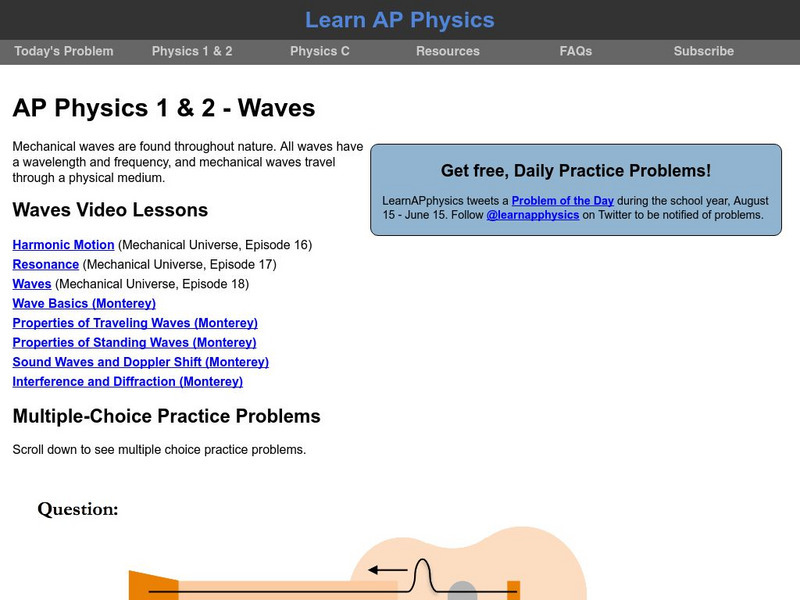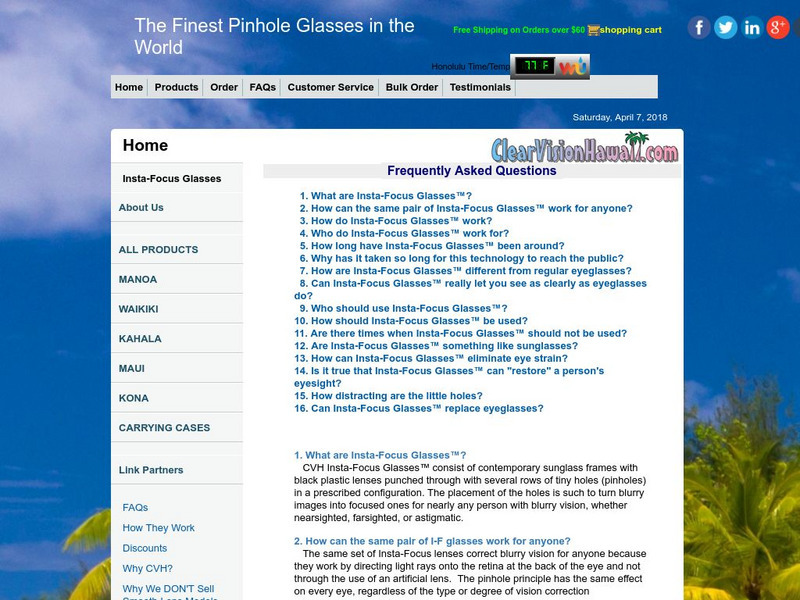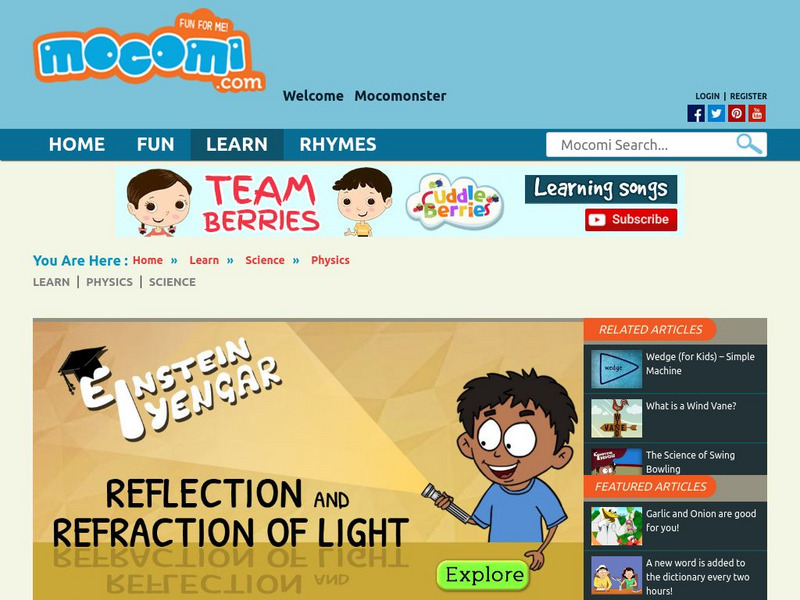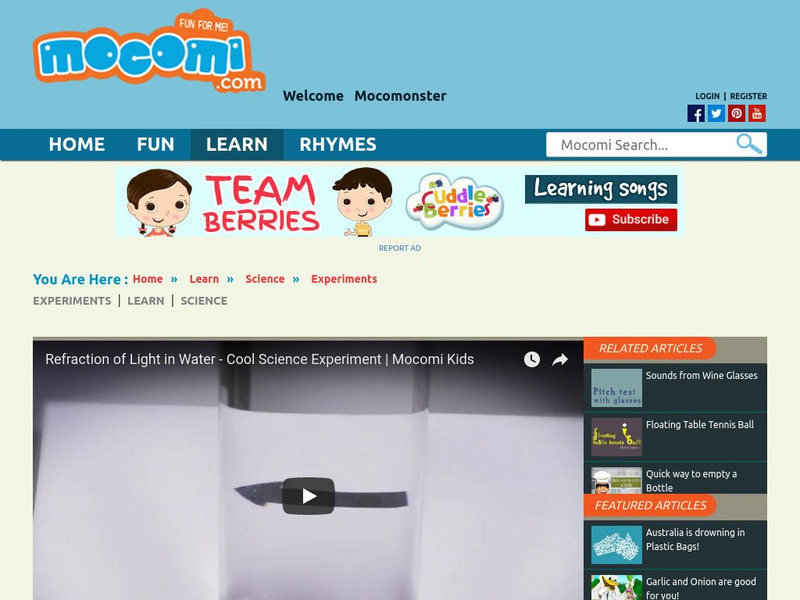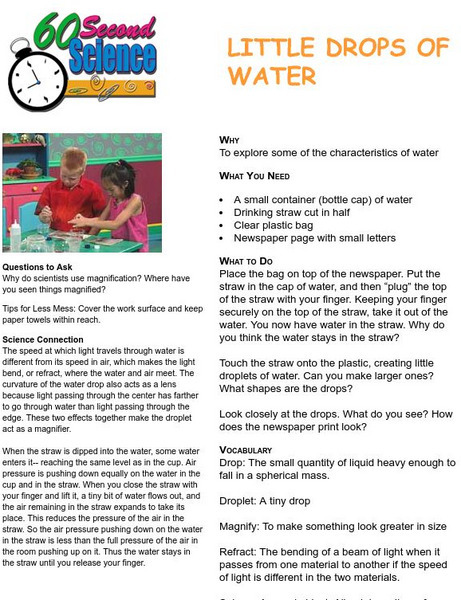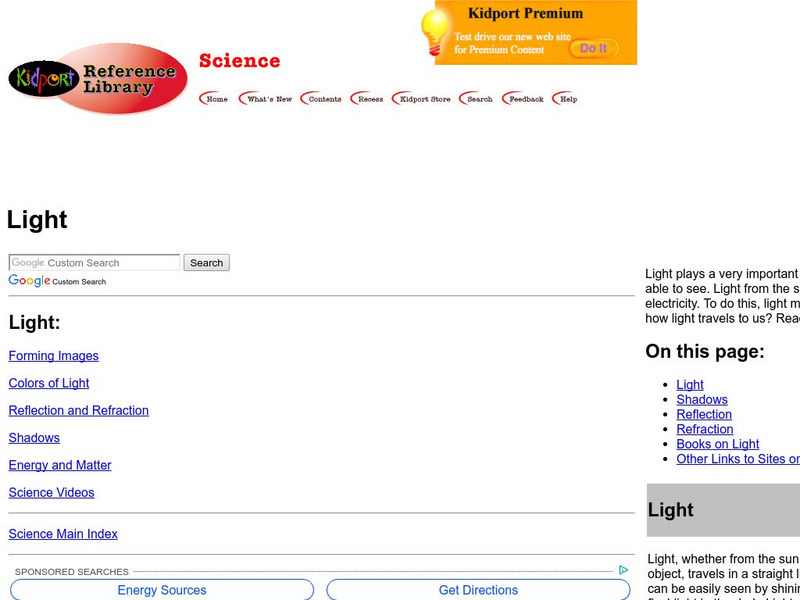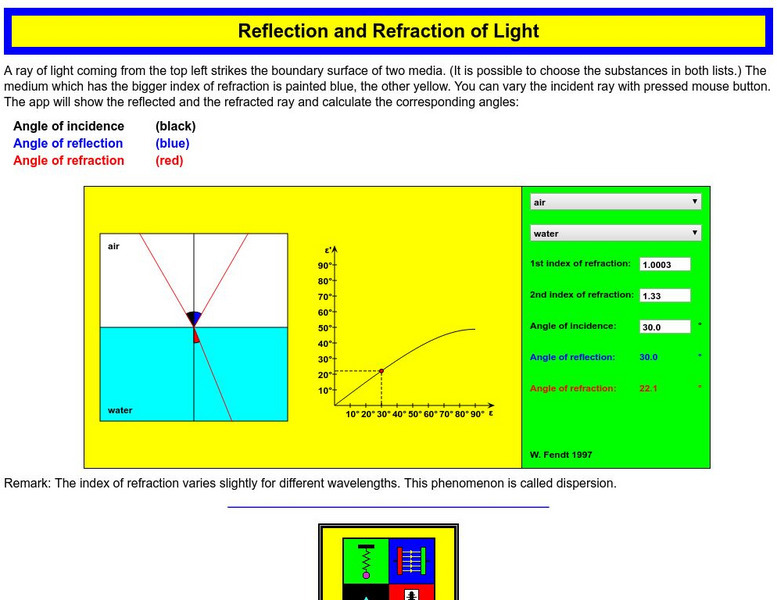Ducksters
Ducksters: Physics for Kids: Wave Behavior
Kids learn about the behavior of waves in the science of physics including reflection, refraction, diffraction, polarization, absorption, and interference.
Learn AP Physics
Learn Ap Physics: Physics B: Waves
A site dedicated to help students prepare for the AP Physics B test. This specific site reviews waves including traveling waves, standing waves, resonance, speed of electromagnetic waves, Doppler shift, Doppler effect, interference,...
Other
Clear Vision Hawaii: Fa Qs About Pinhole Glasses
Using a question and answer format, this page discusses the technical aspect of pinhole glasses. Defines, illustrates and discusses pinhole glasses.
Mocomi & Anibrain Digital Technologies
Mocomi: Reflection and Refraction of Light
What happens when a ball is thrown against a wall? This narrative illustrates how light is reflected or refracted in different circumstances.
Mocomi & Anibrain Digital Technologies
Mocomi: Refraction of Light
Guide to an experiment to study the refraction of light in a glass of water. Observe why this happens.
Synopsys
Synopsys: A Gentle Intro to Optical Design: Why Is the Sky Blue?
Discusses Rayleigh scattering in plain language and attributes the blueness of the skies to this phenomenon. Discussion of scattering is just one topic of many on this lengthy page of optical topics.
Other
60 Second Science: Little Drops of Water Experiment
Explore the properties of water and observe how drops of water can act as a magnifying lens.
CK-12 Foundation
Ck 12: Plix: Refraction: Light Entering Water
[Free Registration/Login Required] Explore how water distorts the location of objects due to the speed at which light travels through different mediums by moving the red point to adjust the angle of the fisherman's line of vision.
ClassFlow
Class Flow: Introduction to Light
[Free Registration/Login Required] This flipchart introduces fifth graders to the science of light. Principles such as transparent, translucent, opaque, reflection, and refraction are covered. Concave and convex mirrors and lenses are...
Synopsys
Synopsys: Optics for Kids: What Is Light?
An explanation of what light is and some of its properties.
Exploratorium
Exploratorium: Snacks
Exploratorium's snacks aren't edible, but they are good! Use your science skills to discover gravity, learn about biology, do fun experiments.
Kidport
Kidport: Light
Did you know that light is a form of energy and always travels in a straight line? Discover some more interesting facts about light.
Optical Society
Optical Society of America: Optics for Kids: Interference in a Ripple Tank
An investigation, using a ripple tank, into how waves behave when they collide with each other. With an explanation of what is observed, and a link to an article on refraction.
Optical Society
Optical Society of America: Optics for Kids: Bending Light
An experiment using a water lens that demonstrates how the eye sees an image. Accompanied by an explanation of what's happening, and a link to an article on refraction.
Optical Society
Optical Society of America: Optics for Kids: Watch Tv Upside Down
An experiment to invert a television image using a magnifying lens. Accompanied by an explanation of what's happening.
Walter Fendt
Walter Fendt: Reflection and Refraction of Light
Defines the refraction of light and provides an applet for investigating it.
Walter Fendt
Walter Fendt: Refracting Astronomical Telescope
An app for investigating the operation of a refracting telescope. The location of the eyepiece and objective lens can be altered, and the focal point and path of light through the lenses can be observed.
Optical Society
Optical Society of America: Optics for Kids: Blue Sky Red Sunset
An experiment where light is shone through a bottle of water, and then milk added, to see how this affects the path the light takes (with links to articles on reflection and refraction that explain what is happening).
University of St. Andrews (UK)
University of St. Andrews: Willebrord Snell
A fairly short biographical sketch of Willebrord Snell (1591-1626 CE). Discusses his upbringing, education and professional life.
University of St. Andrews (UK)
University of St. Andrews: Augustin Fresnel
A short biographical sketch on the life and work of Augustin Fresnel (1788-1827). Comments on a few of his scientific accomplishments.
Science4Fun
Science4 Fun: How Rainbows Work
Learn how rainbows work by reading this illustrated explanation.
Mocomi & Anibrain Digital Technologies
Mocomi: What Is Scattering of Light?
Do you know why the sky is blue? Article defines scattering and how it works. Explains the difference between the scattering of light and reflection or refraction.
Wolfram Research
Wolfram Science World: Snell, Willebrord
This site from ScienceWorld provides a very short biographical sketch of Willebrord Snell (1591-1626 CE) and describes his most notable scientific discovery, the law of refraction. Links are provided for additional information as well.
Curated OER
Ntnu Virtual Physics Lab: Find the Fastest Path
Chinese-language Java applet illustrating Fermat's principle that light follows the fastest path between any two points. Excellent animation and accompanying text. Relates Fermat's principle to Snell's law.



